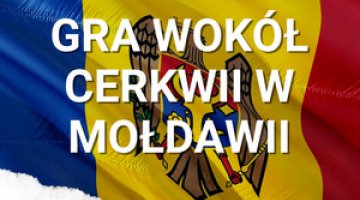Moscow demonstrates its dissatisfaction with Marian Lupu
Marian Lupu, the speaker of Moldova’s parliament and interim president, was treated in a distinctly offhand manner during his working visit to Moscow on 7 February. This should be considered an expression of Russia’s displeasure at his decision to form a coalition with right-wing parties instead of the Communist party which the Kremlin supports.
Lupu went to Moscow at the invitation of the chairman of the lower chamber of the Russian parliament, Boris Gryzlov. The visit was limited to a short conversation with Gryzlov, and no joint communiqué was signed. It seems that Russia imposed a full blockade on information concerning the meeting, with the result that the Moldovan media were left speculating as to whether the meeting had taken place at all. No Russian agency informed of it, and even the Russian parliament’s website made not the slightest mention of the Moldovan guest’s visit; when questioned by the Moldovan media, Gryzlov did not confirm that the meeting had taken place. Furthermore, on the day of his visit, a communiqué was issued about a meeting on 2 February between Gryzlov and the parliamentary speaker of the unrecognised Moldovan Republic of Transnistria, Anatoly Kaminsky, which was accompanied by information about several other meetings which Kaminsky held in the Duma and the presidential Security Council. This gesture must be seen as a deliberate slap in the face to Lupu.
It seems that this treatment was Lupu’s ‘punishment’ for his decision in December to renew the coalition with the pro-European Liberal Democratic and Liberal Parties, rather than form a coalition with the Communist Party, which the head of the President’s Administration in Russia, Sergei Naryshkin, had tried to convince him to do whilst visiting Chisinau early last December. <wrod>





